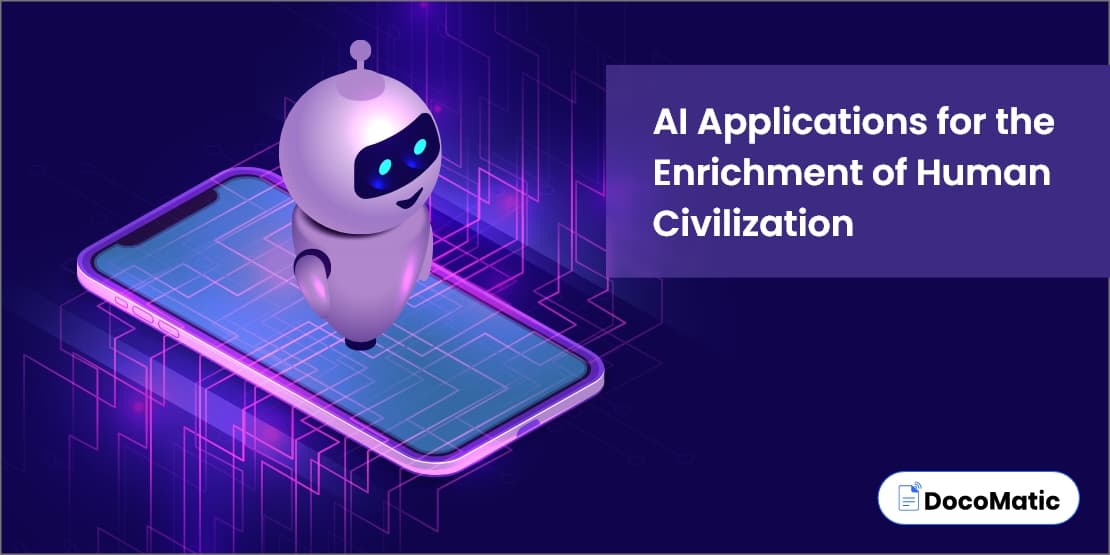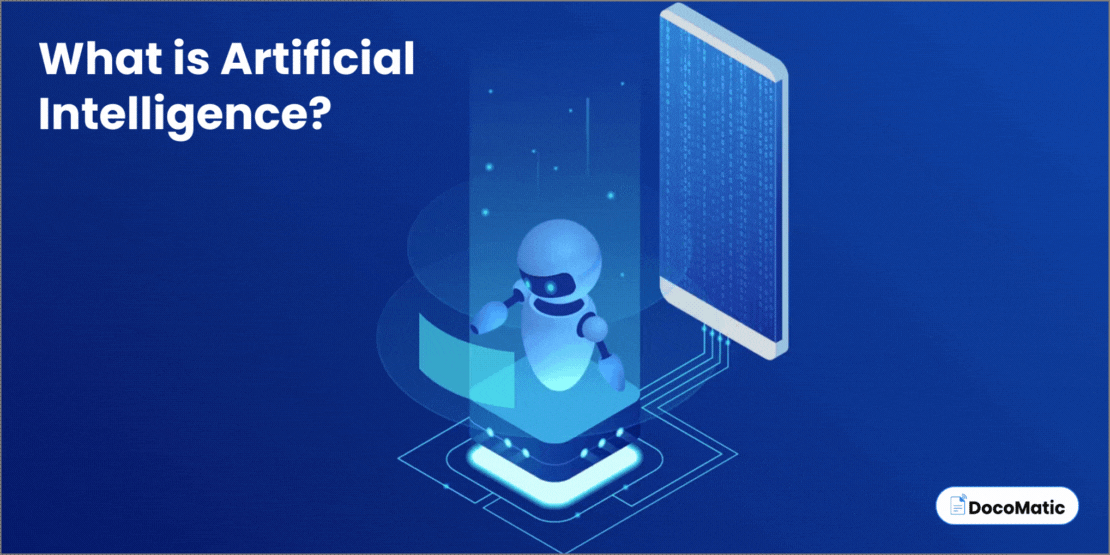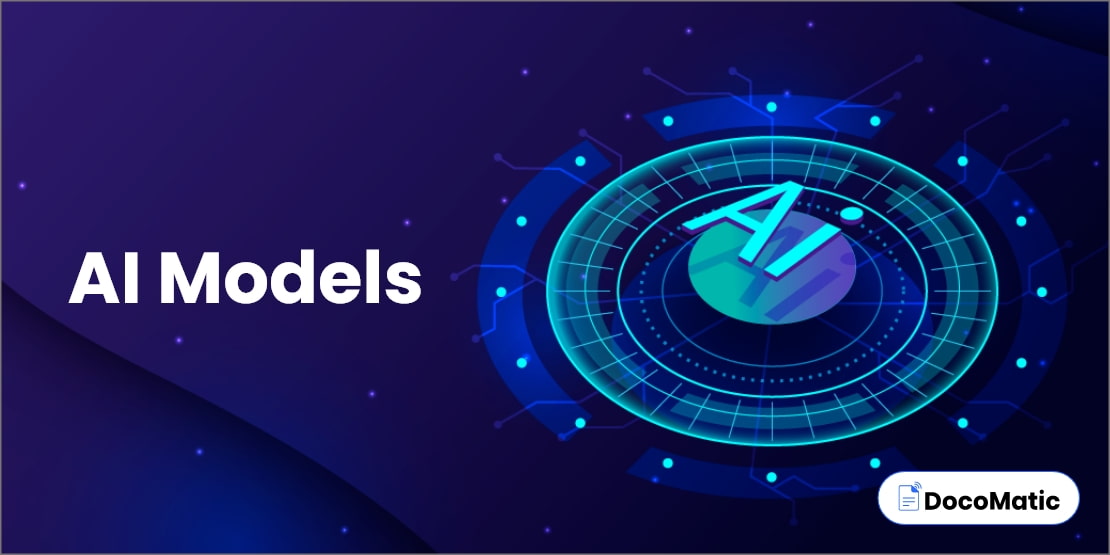The rise in artificial intelligence applications has long been predicted by many scholars around the globe. However not many saw it coming to fruition so fast. While the technology has been worked on for decades it is still flabbergasting to see the potential that AI tools hold.
With the learning and processing abilities of artificial intelligence, one must wonder about all the potential AI applications that could become mainstream. Investigating such areas of application not only allows you to learn about the technology but also explore all possible opportunities that you could take advantage of.
The opportunities presented by artificial intelligence are nothing to scoff at either as some corporations have been able to delegate the majority of their work to AI. This is why to capture the best opportunity first, you must know all the likely applications of AI in industries.
Table of Content
20 Innovative Applications of Artificial Intelligence
When you look at OpenAI, it’s history and how it is changing the world you will see how reliable AI can be. Most of the applications for AI relies on the ability of AI to comprehend human speech and reliably calculate probabilities. The human ability to predict the future pales in comparison simply because an AI has a much larger dataset to factor in and work with.
1. Weather and Calamity Forecast
Weather reports are notorious for being very inaccurate and unreliable. This causes various issues for seamen and those that rely on the weather to make critical decisions. These inaccuracies are usually because of not interpreting data correctly.
This is why with the predictive analytics from an AI you could get more accurate weather forecasts. Such a learning algorithm can also be easily configured to predict impending calamities which may help people evacuate and prepare before the disaster hits.
2. Human language translation
Even the current natural language processing power from AI is able to contextualize and interpret the exact meaning of prompts with high accuracy. This is why it can be used to translate language inputs with little to no errors whatsoever.
Regular translators only translate the words in a sentence without taking into account the previous sentences that put it into context. An AI chatbot such as ChatGPT can not only put the sentence into context but also understand the nuances present in the language.
3. Accurate medical diagnosis
With proper machine learning an AI can easily detect and accurately diagnose illnesses or injuries in a variety of patients. The results can greatly be refined by expanding the datasets that are given to the AI so that it gets better at recognizing different signs of illness.
The diagnosis can be performed nearly instantly with the superfast computer vision that is packed in these AI. Though since the field of medicine is one that is very strict, human supervision is likely to be mandated when relying on AI for diagnosis.
4. Prevention of Fraud
This phenomenon of the rising number of frauds can easily be attributed to the advanced methods employed by scammers such as phishing and deep fake technology to con the general population. These frauds can be very hard to detect as they use AI to make themselves look as trustworthy as possible.
And what better way to spot an AI-generated fake than using another AI to use its fraud detection powers to catch it instantly? AI has already been used to check if certain pieces of media were modified or morphed in some cases of fraud.
5. Clear interpretation of Law
One of the lesser-explored uses for AI is for the interpretation of the law. There have been many accusations of bias when it comes to court cases. While it is important to be as unbiased as possible when fighting a case, it is basically impossible to do so as we are humans.
However, AI technologies can not only be free of bias but also take into account all precedents set throughout history, analyze evidence accurately, and more to come to a conclusion. Such factors are what make artificial intelligence an ideal solution for the interpretation of the law.
6. Logistics and Shipping>
Logistics as we know it is a slow and inefficient process that can cause some serious problems for entire cities. Such logistical issues are usually attributed to poor management that leads to supply inefficiencies which can add up exponentially if not resolved.
An artificial intelligence model can easily classify and dispatch goods to the fastest transported in real-time. This means that the supply chain is never down and can quickly dispatch and deliver products in a cost-effective manner.
7. Specialized education
Because artificial intelligence can recognize speech patterns with user interaction it can also identify the methods of learning that can be provided to said users. This means that the same educational information can be communicated to the student.
Every student has their own learning style and teachers usually cannot cater to these diverse needs by themselves. However, an AI can simultaneously educate millions of students in the most optimal way effortlessly.
8. Efficient hiring and onboarding process
AI chatbots can be used to identify the best candidates for a job with predictive analysis. Artificial intelligence is free of any bias or malice and can objectively choose the best applicants with simulated tests and interactions to accurately estimate skill.
It can also perform other checks that add or reduce the credibility of each and every applicant. You can also tune it to specifically hire the candidate types that you want by setting custom parameters that filter out undesirable candidates.
9. Product development
Developing a product is no easy task as you have to refine it as much as possible while staying ahead of your competitors. With artificial intelligence, however, this process becomes much easier as it allows you to see how your product stacks up against the competitors.
Artificial intelligence can simulate conditions to test your product and evaluate its strengths and weaknesses. It can also show you ways in which you could further develop it to beat the competition and truly make a fantastic product.
10. Cyber security and pen-testing
Keeping your websites secure is very important for any business owner as it is their primary source of income. This is why having artificial intelligence test the defenses of your website is so important. There are specific penetration testing products on the market that do exactly this.
Such AI systems will throw every trick in the book at your site and evaluate how it holds up against simulated cyber attacks without you having to hire an entire team of testers. You can then analyze data given by the AI and carry out improvements accordingly.
11. Survey and analytics
Carrying out surveys and gathering data on a specific group is a very time-consuming and strenuous process. Data collection is arguably the hardest part though classifying and compiling the collected data is not easy either.
This is why you might want an artificial intelligence solution to handle the collection and interpretation of data. The natural language processing power again comes into play to contextualize and accurately present data from a wide variety of data.
12. Improving agricultural efficiency
There are many ways to integrate agriculture artificial intelligence to improve productivity and crop yield. The field of agriculture is one that is very sensitive to the smallest changes, thus it would be nice to have an AI with deep learning to monitor the farm’s data.
With enough effort, you may also be able to fully automate your farm and let the AI actively manage all activities from seeding to harvesting. Letting artificial intelligence handle farming will make the supply faster and the crop yield grow without human intervention.
13. Content creation
Individuals in the creative sectors know how hard it is to come up with new content every single day. It is not rare to hear such individuals face creative exhaustion and burnout after every single project. To remedy this companies have started to look up to AI content.
This has been especially true for the past few years when websites have been using AI-generated content to perform tasks that require creative insights. While it will never replace natural creativity, it can be used to inspire new ideas in existing content creators.
14. Predicting finances
The ability of artificial intelligence to predict what will happen in the near future with existing data is what makes it so important for the financial sector. With the data on how certain assets will perform from AI, financial firms can grant their customers greater returns.
Such promising potential is what makes many financial firms eager to have an AI system access their accounts and assets. Although the impacts of powering the financial industry with AI are unknown as there are not a lot of examples of AI-based investments.
15. Targeted marketing
The e-commerce industry is one that is always looking forward to new methods of targeted marketing. While they are already pretty good at targeted marketing with ads, maybe artificial intelligence is the final frontier that is left to conquer.
With the right machine-learning algorithms AI should be able to fully understand the psyche of any user by simply monitoring user behavior on the web. This obviously makes AI a very powerful tool to decode buying habits and patterns on a large scale.
16. Automated transportation
The entire automotive industry as a collective has been invested in the idea of self-driving cars for years now. The industry is pursuing this aspect of cars mainly to improve global automotive safety and efficiency.
The world has already seen a few examples of this technology from companies such as tesla. Though when powered by AI, cars can actively detect obstacles, speed limits, and living beings to act accordingly.
17. Sales and Catering
Automatic sales kiosks have already been in service for years though they leave much to be desired. Mainly the ability to resolve customer queries and provide more advanced services. An AI-powered voice-based kiosk can easily resolve these issues for any business.
Because of NLP powers, AI-powered kiosks can understand and resolve customer queries without a lot of errors. This can also be used at self-serve stations to give potential customers more information about the product.
18. Drug interaction simulations
One of the biggest issues in the medical sector is checking how different medications interact with the human body and with each other. Knowing how their reactions work can not only boost the speed of finding cures to diseases but also save lives in the process.
This is because many people unknowingly combine drugs that can have lethal effects when consumed together. Having a way to inform patients about these interactions can prevent many such accidents all over the world.
19. Surveillance and security
Countries like China have already used AI to power their social credit system that governs citizens based on a credit score that is based on their interactions in the public. While this highly complex system might sound dystopian it has much better small-scale uses.
When used for home surveillance it can deter any potential criminal activity when armed with facial recognition features. It can also be used to monitor work sites to detect and prevent any dangerous or unauthorized practices that may harm the company.
20. Defense applications
The defense sector is probably the best-known sector that uses AI on this list. When matters of national security come into hand there is no better way to deal with them than with AI. This is all thanks to the sheer utility and flexibility provided to the sector by AI.
Artificial intelligence can be used for a variety of applications such as movement detection, tactical assistance, drones, autonomous vehicles, and more in this sector. Due to such high potential, world governments are looking to rapidly modernize their forces with AI systems.
Common Risks of Implementing AI
If you know what is artificial intelligence then you know the benefits of implementing artificial intelligence in modern life are numerous. the risks cannot be looked over. The risks mainly question the reliability of any given AI model and the creators of the AI themselves. Let us look at some common concerns.
1. Possibility of AI going rogue
The possibility of a rogue AI is more than just Sci-fi speculation as there have been documented incidents of AI malfunctioning wildly. When AI does become mainstream its stability will definitely come into question in the eyes of the masses.
This is because when integrated into society completely, even the smallest error from the AI can have catastrophic consequences. Though in reality, it is much more likely to have other parameters that can prevent malfunctions or control any damage that is dealt by the AI.
2. Need for human supervision
Like it or not, AI will probably never be free of human supervision as even the slightest chance of failure warrants a method of early detection. This is why AI is often overlooked by humans so that there are no malfunctions during regular activities.
Though this supervision comes at a cost that companies will have to bear. Still, when compared to working without AI, the cost of a team of supervisors may be negligible to some companies that are looking to downsize their workforce.
3. Uncertain future
There is no certainty as to what will happen when artificial intelligence does indeed become the standard for global operations. When AI does become the standard, the developers of AI have the power to basically control all the operations directly.
Will the prices of AI go up dramatically? What will happen to people that lose their jobs to AI? These are just a couple of questions that haunt individuals and companies alike when discussing the future of AI.
Frequently Asked Questions
Artificial intelligence does not face the same limitations as the human brain because it has access to greater computational powers and bigger datasets. This makes it much more capable of dealing with inefficient or complex tasks when compared to humans, allowing human civilization to dump its inefficiencies and progress further as a collective.
Whenever AI is entrusted with any task that involves medical diagnosis or treatment, great precautions are taken because there is a life at stake. AI can have devastating effects in the medical sector much like any other, which is why it is always under supervision.
The cost to produce such smart machines coupled with the risk of burglary or damage put off many companies from implementing such solutions. Customers also usually prefer interacting with humans that cater to their needs more than an automated kiosk.
Conclusion
While there is no doubt that the capabilities of artificial intelligence are leaps and bounds ahead of that of a human, having an AI-powered society is still far in the future. This is because AI has yet to prove itself as a robust and reliable solution to the problems of the world.
With every single malfunction in an AI the trust that individuals have in it fades. AI has and always will face skepticism from humans and for good reason as the developers are the ones that truly control how the AI functions in the world. There are also concerns about the majority of people ending up jobless due to the rise of artificial intelligence.
Until these issues are dealt with, it is pretty safe to say that AI will simply have niche uses without becoming the mainstream option for quite some time. Even today AI is developed to be used in specific areas that require it the most instead of being a solution to everything.


